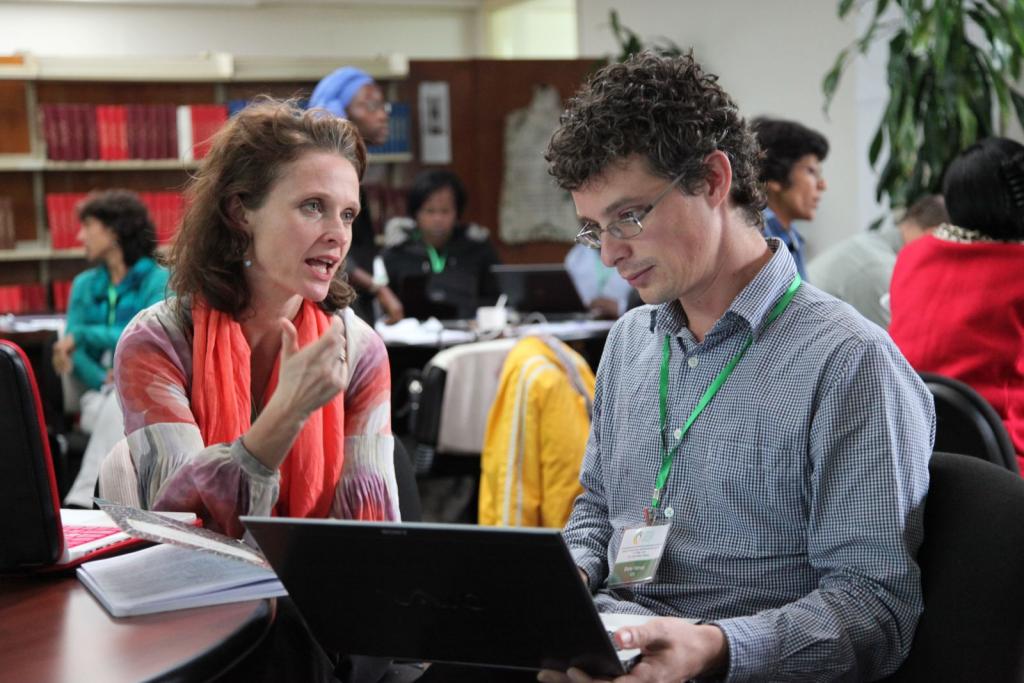
Analysing governance systems and engagement from national to global levels
A number of research projects under this area seek to analyse the decision-making and policy processes of governments and institutions. Projects explore questions such as how stakeholders prioritize investments, who is engaged in the policy processes, and how gender and other social learning aspects are incorporated into climate strategies and plans.
Other projects analyses the strengths and weaknesses of national and regional governance systems and food policies, to better understand which context-specific characteristics that generate sustainable and climate-resilient food systems. And which kind of transformative change in governance is required to move towards such systems.
A better understanding of policy engagement, development and design, and how various governance structures work, will mean greater opportunities to efficiently inform and support climate-resilient food systems.
This research area will provide a better understanding of local climate-smart food system priorities and lead to more appropriately, directed institutional investment from regional and global organizations such as the World Bank, Food and Agriculture Organization of the United Nations, UNFCCC and the International Fund for Agricultural Development (IFAD).
Selected Projects
A team led by the International Livestock Research Institute (ILRI) seeks to better understand what influences policy formulation and implementation, and what role science, and even scientists themselves, play in national-level policy-making processes with case studies from Ethiopia and Senegal.
A myriad of research activities with differing scopes will seek to identify which context-specific structural factors, such as formal and informal institutions, power constellations, and resource distribution, help to either stabilize or destabilize food systems. The goal is to map out how to transform governance structures so that they support sustainable, climate-resilient food systems.
Examples include one research study analyzing the influence and impact of non-traditional actors, such as food relief actors for example, in food systems governance. And another study is looking at discourses and power structures in governance systems, i.e. who decides which issues are brought forward and discussed, to help share lessons for scaling up good decision-making practices
The various research activities are led by scientists from Indiana University Bloomington, University of Pretoria, Universität Osnabrück, Institute of Development Studies (IDS) and International Food Policy Research Institute (IFPRI).
The Climate Change and Social Learning (CCSL) initiative, led by CCAFS, will continue its work to document and build an evidence base for social learning case studies across the program’s five regions, using the developed monitoring and evaluation framework for social learning approaches. The aim is to demonstrate whether, when and how social learning related approaches in research for development can enhance the achievement of outcomes. The initiative is made up of partners including International Institute for Environment and Development (IIED), International Livestock Research Institute (ILRI), and the Collaborative Adaptation Research Initiative in Africa and Asia (CARIAA).

Workshop on communication and social learning to support local decision-making on climate change, agriculture and food security. Photo: Z. Sewunet (ILRI)
The policies and institutions Flagship continuously conducts synthesis work to ensure that appropriate lessons from CCAFS projects in the five CCAFS regions are captured and shared. The team also looks at the effectiveness of different types of policy engagement, with the aim of gathering evidence on what works where, how and with whom. Collecting these approaches and related lessons will help reveal how best to upscale efficient climate policies.
Últimos proyectos sobre Analysing governance systems and engagement from national to global levels
